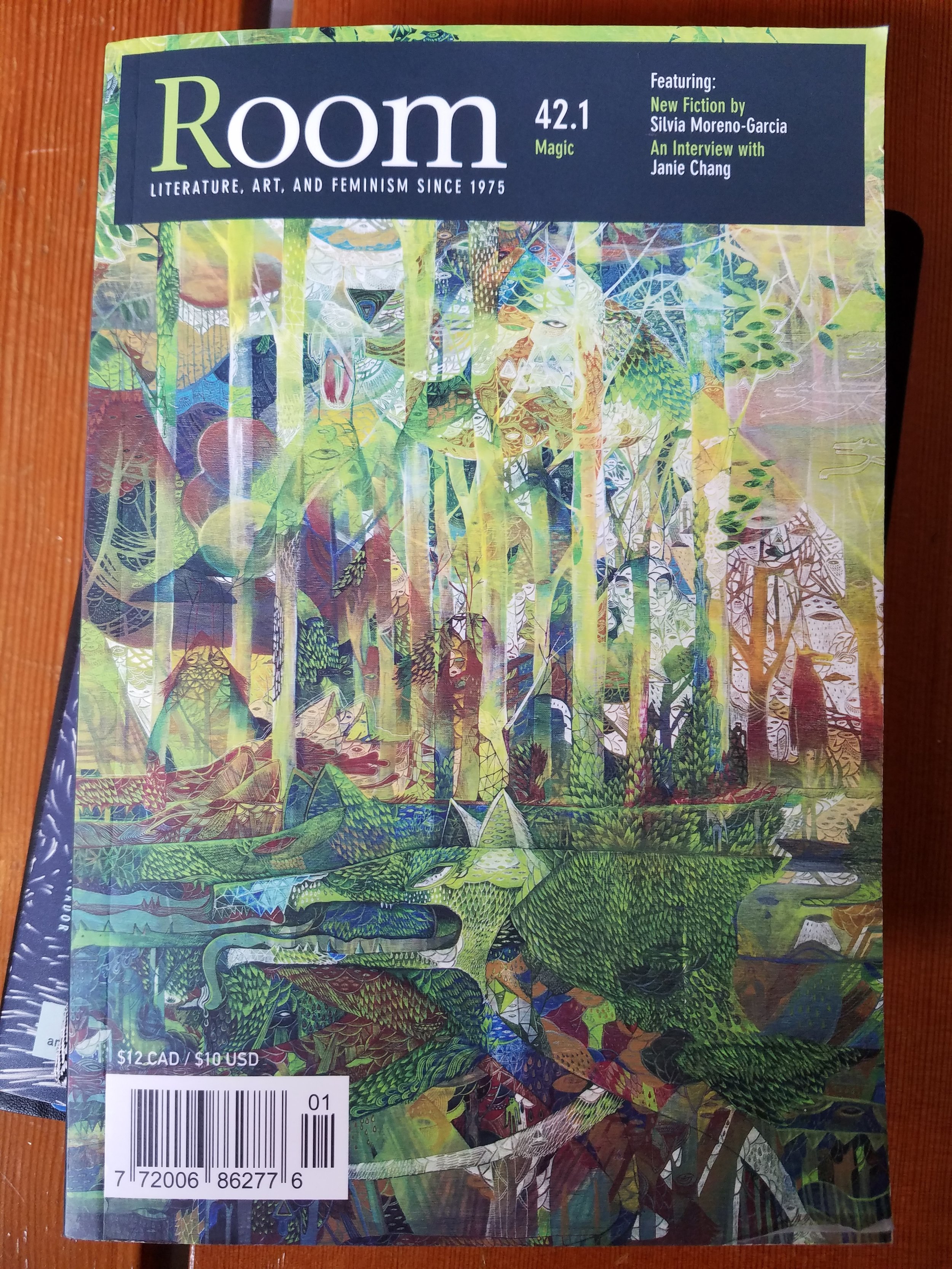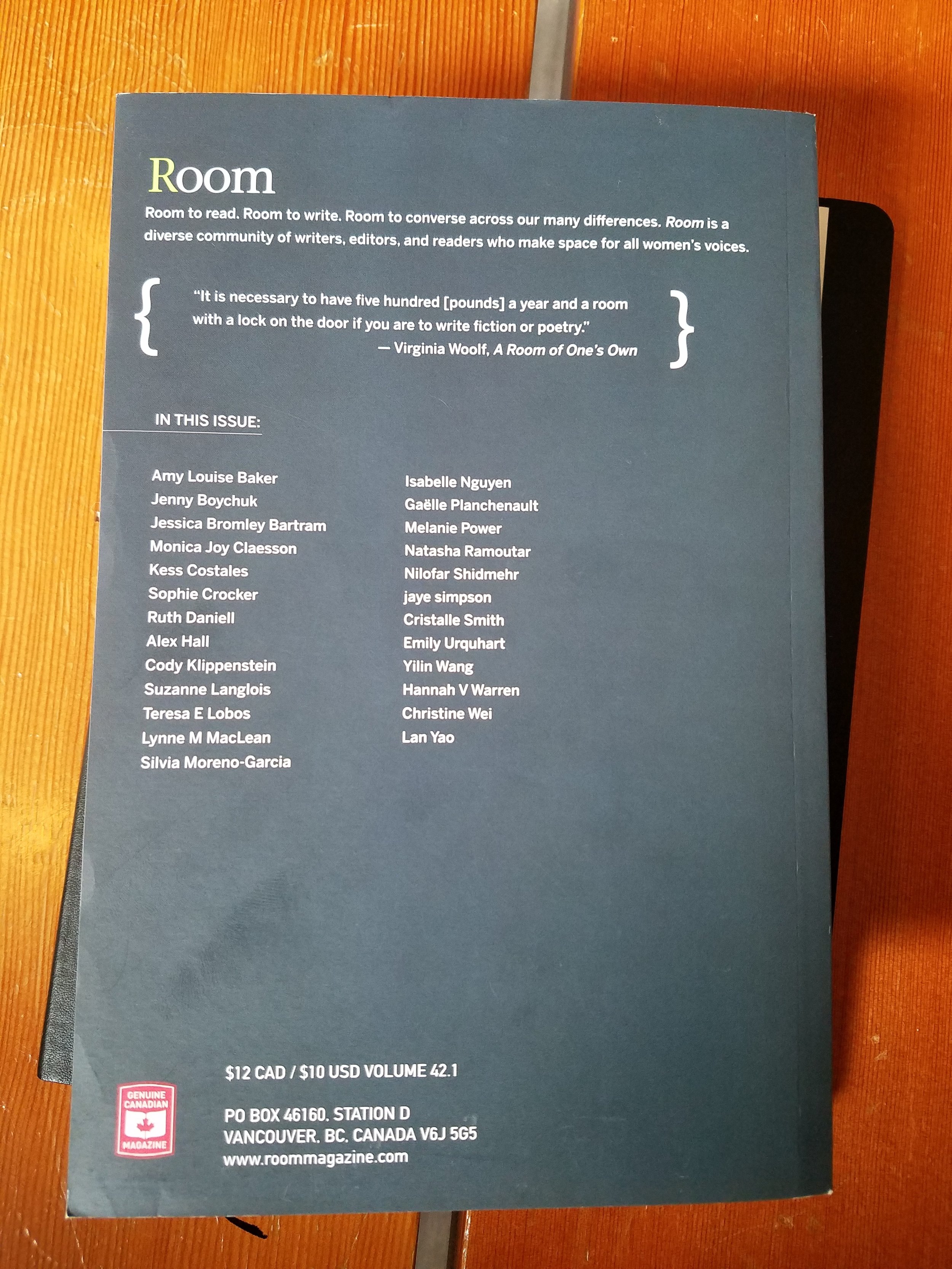For their first issue of 2019, Room’Issue 42.1, the editors made a call for magic and their submitters conjured tales and spells that did not disappoint. The resulting literary magazine has one of the most beautiful covers I’ve ever seen (I re-upped my subscription immediately upon seeing it previewed online) by Lan Yao. Between the covers, editor Arielle Spence explains, the issue makes room for all of the various interpretations of magic from the writers who submitted and was delighted.
My focus this year is on writing short fiction, so while I read the poetry and non-fiction in the lit mags I am reading, that is not where my attention concentrates. Having said that, there is no better occasion than the occasion of magic to read poetry. While some brought the whimsy of fae moments, others are deeply weighted by the subjects with which they grapple. And, Emily Urquhart’s personal non-fiction essay was surprising in its somber and beautiful connection to the theme, an incredible account of miscarriage.
Yilin Wang’s interview with Janie Chang about her fiction and speculative fiction’s power to reimagine and restore narrative power was an engaging read about the power of magical stories (and made me want to read everything Chang’s written). Admittedly, Chang is writing from a similar place where many of my ideas stir, but from a different cultural perspective than my own or that I have studied deeply—how can I not be excited about an author entwining historical fiction with the speculative? If anything, my lack of experience with the eras of Chinese culture Chang writes about, only makes it more appealing.
The issue’s short fiction offered such variety on the theme. It made for a delightful and beguiling read.
The first short story was “Museum” by Kess Costales, a magical realist exploration of the way that forcing heteronormative expectations on our youth damages everyone involved, and that release from that expectation—the only moment in the story when the magical is withdrawn from the narrative—can be the first moment of magical connection that closeted queer youth, too often grow up training themselves not to expect or believe they deserve love, experience.
Silvia Moreno-Garcia’s commissioned piece, “Alicia Dreams the Sound of Footsteps in Her Wake,” is a tale of haunting. Whether there are actual ghosts haunting the characters or their own present shackled to failed dreams and disintegrating relationships from their youth, is the reader’s question to answer. I am excited to read more of her characters and her places.
Cody Klippenstein’s “Becoming” is set off the coast on an island with superstitious sea folk. Following the mysterious deaths after an enormous fish beaches and dies on their shores, an enterprising young fellow from the mainland’s university comes to make his name, planning to take his turn with the main character, Celine, whom he finds unready to accept his humiliations, but totally prepared in her transformation to devour him for herself.
In “Wards”, Lynne M MacLean describes the hereditary dragon that plagues her family, following them over with her grandfather from the Old Country. She is not unprepared for this menace, however, and takes every step to protect her young family from its appetites.
Finally, there is a more heart-wrenching tale of a transwoman finding her way for her ill mother and herself, working extra shifts to cover the expenses as “The Snowplow Driver.” Gaëlle Planchenault’s story describes the different technical words for snow that she plows through the midnight shift and the strange hallucinations she observes in her exhaustion. When released from the real people in her life, either in rejection or death, Paula goes out on her night off to explore where the phantom creatures bid her to follow.
As ever, Room makes space for brilliant women and non-binary authors, to share compelling narratives and this issue is one my favorites.




